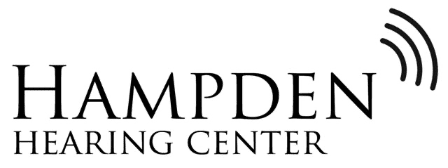Hearing devices are comprised of tiny electronic components that may experience wear and tear over time. If a problem occurs, you’ll likely need to visit your audiologist to have the issue assessed. Whether it’s simply due to aging or the units have been exposed to moisture, excessive wax, debris or physical damage, you’ll want your audiologist to evaluate the extent of repairs needed. To avoid major problems with your devices, we recommend a professional clean and check visit every six months.
Common hearing aid issues
You may try to turn the hearing aid on in the morning and find that there is no sound or the sound may be weak or noisy. These things do happen, even when the hearing aids are properly cared for. If you experience an issue that requires a repair, call your audiologist’s office and arrange a time to bring the hearing aids to the office. The staff is equipped and trained to evaluate and diagnose malfunctioning hearing aids. Some minor hearing aid repairs can be done in the office in a short period of time, while others may need to be sent to the manufacturer for repair. Your audiologist can help determine what kind of a repair is necessary if you feel your hearing aid is not working properly. Your audiologist will work as a liaison between you and the manufacturer, should the hearing aid need to be sent to the manufacturer, to ensure you are kept up to date on the status of the repair.
Hearing aid repairs
If you have hearing aids that were not fit in our office, we are happy to try to repair your hearing aids. We are able to service many major brands of hearing aids and can advise you as to whether yours is a type we service. Hearing aids come with a warranty when purchased new. If your manufacturer warranty has expired, it is still possible to repair most hearing aids for a fee, depending on the extent of the repair and the age of the hearing aid. Depending on the hearing aid manufacturer, this repair may come with a new repair warranty. In the event your hearing aid is severely damaged and unable to be repaired, our professionals will work with you to determine which new devices would be best for your current needs. Your audiologist will provide you with details about your options when you bring your hearing aid into the office.
Loaner Hearing Aids
If your hearing aid(s) need manufacturer repair, we will do our best to provide you with loaner devices, if possible. If you would like to borrow loaners, please request the use of loaner instruments when you call the office to schedule the time for an appointment with the audiologist or to drop off your hearing aids to be checked. Please note that there are limitations on use of loaners, for example if you use custom in-the-ear hearing aids or behind-the-ear hearing aids with earmolds that have brittle tubing.
Hearing aid maintenance
One easy way to keep your hearing aids in good working order is by properly caring for and maintaining the devices. This means cleaning them daily with a brush and a dry cloth, removing batteries at night (if you use disposable batteries) to allow any moisture to evaporate, and examining them periodically for any scratches, cracks or damages. If your hearing aids have domes and wax guards, you should replace them periodically. Remember to contact your audiologist if you discover any kind of malfunction or damage to your device.
We recommend that you schedule an appointment to see the audiologist every six months for routine preventative maintenance. This ensures that your devices continue to function optimally.
